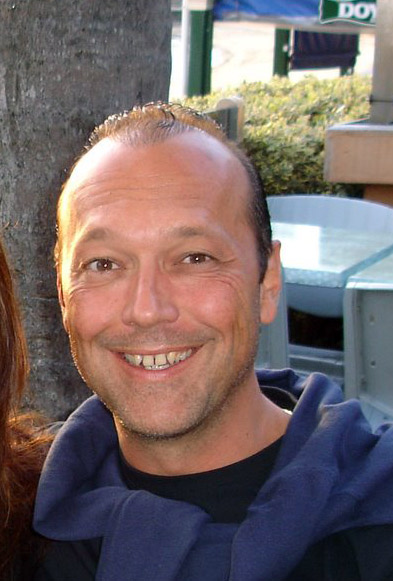What is the difference between Judaism, Hinduism, Christianity, Islam, Buddhism, and New Age philosophy?
Many regular readers of Soulfulliving.com are likely to be well versed in New Age thoughts and techniques, yet may have at least a cultural background in one of the main religious traditions. Some might say that it is a bit of a silly question to ask as the differences are so huge that people are willing to both kill and die over their particular beliefs.
In terms of organized religion, there are indeed many differences. Even within a particular belief system. But from a perennial philosophy point of view, there is really no difference. Or not many at all. Allow me to elaborate on this with some thoughts and a few excerpts from my books, specially for this 20 year celebration issue of Soulfulliving – with my heartfelt congratulations to Valerie, its founder and editor-in-chief!
But first, let’s quickly address the charge (by evangelical atheists and their followers) about the supposed venality of religion, that it is a main driver of wars. It is certainly true that religion has been used as an external reason, justification and motivation for violence, yet the real cause is always power and profits.
Throughout history, all wars were and still are instigated by the elite for the exclusive benefits of the elite. All killing and dying however is done by the peasants (a.k.a. the regular ruled people). Normal folks don’t just wake up one morning and think about starting a nice little war somewhere, just to pay higher taxes or worse, having to leave their homes and loved ones behind; they not only lack a motive but have plenty of good reasons to prefer peace.
Nowadays, religion is less openly (but again increasingly!) used as an excuse to start wars. Modern PR techniques of many kinds are the new tools being used to make us hate and despise others – those with certain given or chosen labels that are suddenly declared to be the new enemies of the day. To be fought at our expense and their profits.
Nevertheless, a bit over two decades ago, I have elaborated in my first book why organized religion is not a very good idea as it has a great many inherent faults. Besides helping to divide and rule us more easily, it is all too often the very cause of a lack of spiritual understanding, even preventing the actual experiencing of real bliss and joy.
“Before any particular belief system can be ‘incorporated’ and an organisation formed, it must become a separate entity. The organisers have to first claim that they are the only ones to really know the absolute truth that sets us free. Right?
Let’s say you want to start a new organisation but you tell your audience that group A, B, C, and D are in your opinion preaching the correct and complete truth. How many people will agree to join your new group? Nobody as everybody can join group A, B, C or D and there is no need for your group to exist!
So your first step will have to be to tell your listeners that group A, B, C and D have it all wrong, that they don’t know the real truth or at best, are only partially correct. But that you have found the solution to all there is. And if you are convincing enough you will succeed.” (Yes I Am Happy Now!; 1999, p. 127)
Perennial philosophers and mystics have recognized these and other mechanisms of control for a long time and at the same time identified what unites us all. The essence of all historical philosophies and religious traditions is the very same; even if it is obscured by sheer endless external differences; even if its adherents cannot yet recognize it.
To experience what is really real one has to move beyond the fallacies of organized religion. And leave behind all notions of club consciousness. Thereby moving into the realm of real religion:
“Religion is about experiencing, not believing; spiritual realities are either personally experienced, or not (yet). The word religion says it very well in its Latin roots: religare, or ‘to reconnect’ – i.e. re (again) + ligare (connect, unite, tie together).” (Tweeted on December 21, 2017)
The following excerpt from my second book will demonstrate first one of the exclusionary and absolutist claims that is meant to separate us before showing why there is no real difference in the eternal essence of either Judaism, Hinduism, Christianity, Islam, Buddhism, and New Age philosophy.
Begin of excerpt (without Notes):
“I am the way and the truth and the life. No one comes to the Father except through me.” (John 14:6)
Quite a few people use and abuse this verse to deny God’s love to non-Christians, to all the not converted, or ‘saved’. Basically they are saying that anyone who did not have the good fortune of hearing about Jesus is denied the possibility of feeling God’s love or loving God.
What kind of God or messenger of his would deny unconditional divine love to any of his children? The very thing that he clearly and repeatedly said is most important and desired?
Such folks cultivate and propagate various types of exclusionary and divisive cults that often also reject Christians of any other denomination or persuasion than their own. They like to proclaim to be the ‘lovers’ or representatives of Jesus yet at the same time they quite obviously don’t follow his first and foremost commandments: The lack of both love and joy is simply there for all to see. Love never breeds hatred or associated words and deeds. Not for any cause, reason or justification. And no matter how ‘nicely’ it may be wrapped or sold by some fanciful preacher.
Any divisive and sectarian mindset – which is always based on ego’s need to feel superior – immediately excludes God’s love. The attitude of ‘us versus them’ or ‘we the saved versus the poor souls that need to be saved’ exists purely on the ego level and disconnects anyone (no matter how ‘exalted’ we may think we are) – automatically and instantly, by default. What remains is just empty talk and gesture, devoid of any sweetness or life.
True love breeds real understanding. Thereby it broadens our mind and expands our consciousness.The non-religious or spiritually weary too are able to feel love in many shapes and forms. And ultimately, by divine design every soul will be able to once again attain and feel love of God. It is only a matter of desiring it, or not. As such it is only a matter of time.
Jesus outlines a path of pure spiritual love. He knows that thereafter all else will be given to us, automatically. Seek, find and cherish the love of God, love your self and love each other. By doing so we already live in a heavenly space in the here and now as heaven is the place of eternal love and peace, joy and happiness.
People who live a life of darkness don’t see the shining path of love that leads to happiness and heaven. The absence of light is darkness. Love is light. And thereby it dispels all darkness. The only key that is able to unlock the gates of heaven is the universal key of love.
Jesus lives and prescribes pure love. There is therefore no difference between his words and deeds and who he eternally is in his very essence. He is love and thereby he is the way. He made love his central commandment and very clearly so.
Love is the way and the truth and the life. No one comes to the Father except through love.
The eternal reality of love in all its shades, shapes and forms is not exclusive to Christians. Love exists since time immemorial, no matter how imperfect it may be at times. The central importance of love has been taught in many ways and in many places throughout history. Every soul inherently recognizes and knows love even though we may temporarily avoid or neglect to feel and live it.
Love of God has been called the ‘essence of Judaism’. In the Book of Deuteronomy, the fifth book of the Hebrew Bible and of the Jewish Torah, it is written:
“And you shall love the Lord your God with all your heart and with all your soul and with all your might.” (Deuteronomy 6:5)
Love of God is also the highest spiritual attainment in Islam (even though that seems rather doubtful when one considers the current state of affairs in the world. Nevertheless, the highest goal of Islam is love as understood by all enlightened practitioners):
“Yet there are men who take (for worship) others besides God, as equal (with God): They love them as they should love God. But those of Faith are overflowing in their love for God.” (Quran 2:165)
“O lovers! The religion of the love of God is not found in Islam alone. In the realm of love, there is neither belief, nor unbelief.” Rumi (13th-century Persian poet, Islamic scholar and Sufi mystic).
Once one of the most important of the early Sufi poets and mystics was asked, “Do you love God?” She answered “Yes.” “Do you hate the devil?” She answered, “No, my love of God leaves me no time to hate the devil.” Rabia (a female Muslim saint and Sufi mystic).
For thousands of years some Hindus have been practicing Bhakti Yoga to first and foremost cultivate their love of God; “a practice of devotion toward God, solely motivated by the sincere, loving desire to please God, rather than the hope of divine reward or the fear of divine punishment.”
And Lao Tzu, the author of the Tao Te Ching and founder of philosophical Taoism, said well over 2’500 years ago that: “Being deeply loved by someone gives you strength, while loving someone deeply gives you courage.”
Last but not least, here are a few insights by well-known contemporary Buddhists:
“Love and compassion are necessities, not luxuries. Without them humanity cannot survive.” Dalai Lama
“The Buddha’s teachings on love are clear. It is possible to live twenty-four hours a day in a state of love. Every movement, every glance, every thought, and every word can be infused with love.” Thich Nhat Hanh
“If there is love, there is hope that one may have real families, real brotherhood, real equanimity, real peace. If the love within your mind is lost and you see other beings as enemies, then no matter how much knowledge or education or material comfort you have, only suffering and confusion will ensue.” Dalai Lama
The Golden Rule that ‘one should treat others as one would like others to treat oneself’ was already known in the Mohism, Taoism, and Confucianism of Ancient China. It was taught thousands of years ago in Hinduism, Buddhism, Zoroastrianism, and Ancient Greece.
“Never impose on others what you would not choose for yourself.” Confucius (551-479 BC)
“Do not do to others what would anger you if done to you by others.” Isocrates (436–338 BC)
No matter the various names we assign to the Absolute Truth, or the particular ways we celebrate and worship in our creed and culture, we are all children of God. We are all equal parts and parcels of creation, no matter our individual thoughts, feelings and desires, no matter the color of our bodies’ skin, no matter where we were born or how we were raised.
“Did not just one God create us all? Why then does humankind deal treacherously with one another? This betrays the teachings of our ancestors.” (Malachi 2:10)
Every child of God can (re)discover divine love within their hearts and minds. We all experienced it while we were still within the womb of our mothers – regardless of the particular part of planet Earth we were destined to be born nine months later. Pure love after all is both eternal and universal.
‘Many roads lead to Rome’, respectively take us back to God. And of course there is only one God who created it all. It wasn’t the Catholic God that created the sun, a Protestant one who fixed the moon, a Jewish one who came up with the idea of creating planet Earth, and so on and so forth.
Some roads are more direct than others, some are smoother than others, some take us there quicker than others. In the end however, we will all reach our destinations once again.
Christianity can show us the easy, quick and happy way – for as long as we concentrate on the essence and avoid arguing over irrelevant details that only cause separation and conflict. Love is the essence. Trying to deny it to others by various mental concoctions only means (and reveals) that we ourselves don’t actually feel it in the first place.
When we cultivate what is basically a form of ‘club consciousness’ and feel better than members of other clubs (churches or congregations or assemblies of atheists, etc.) we instantly cut ourselves off the love of God. Because at the core of who we are we know that we are very wrong and thereby feel a bit guilty and not quite worthy of God’s love.
Identifying one’s self and others as ‘club members’ to be either cheered or jeered is a clear sign of living in ‘ego-land’, or the ‘world of labels’, rather than being anchored in the spiritual truths of the eternal universe of love.
Disconnection to the divine also happens when we judge and condemn others, are arrogant or condescending, anytime we feel superior or ‘above’ our fellow brothers and sisters. That is just a simple little spiritual truth that most of us get to experience; some of us occasionally only, others perhaps most of the time. Until we all become aware of this obstacle to love and decide to instead live happily ever after. With lots of love. In peace and harmony. Both within our hearts and minds, and with everyone and everything we meet and encounter.
“Don’t condemn others, and God won’t condemn you. God will be as hard on you as you are on others! He will treat you exactly as you treat them.” (Matthew 7:1-2)
Love is open and available at all times to all of humanity, and indeed, way beyond. Animals of all kinds display great love, affection and care within both their immediate and extended families. We can also witness much love and cooperation between different species, even among the most unlikely kind of animals.
In the end it doesn’t really matter whether we call ourselves Christians or not. For anyone who follows the principles laid out by Jesus and reaffirmed within these pages is a Christian – not in name only but in actual reality. And that is all that matters. Because it is what is most pleasing to God, the universe of love.
God is the primal principle at the heart of the universe. And, God is love (1 John 4:8). Therefore love is the fundamental force at the core of All There Is.
“And now abideth faith, hope, and love, even these three: but the chiefest of these is love.” (1 Corinthians 13:13)
End of excerpt (Merry Christians; 2016, p. 208 – 213)
Divine love is the ultimate reality; all mystics, saints and sages of the ages fully understood this, yearning to tune in and merge with this infinite ocean of light, the all-encompassing and ever-present sea of unconditional love that embraces us all, whenever we are ready to feel it once again.
Let’s conclude this little excursion into the world of perennial philosophy with the words of an early theologian, one of the most important church fathers who was canonized by popular acclaim:
“The same thing which is now called Christian religion existed among the ancients. They have begun to call ‘Christian’ the true religion which existed before.” Saint Augustine (354-430 AD)
Loving and loved people are happy people. Happy people are also peaceful people. And peaceful people will not allow their country’s elites to keep instigating needless wars of aggression.
Nor will they be ready to die or pay for them.
Loving and loved people instead demand and implement policies that really take care of all of us, regardless of our given and chosen labels.
“Love, say what you want, do what you can, hope for the best, and surrender the rest.”
Copyright 2020 Arne Klingenberg. All Rights Reserved.
 |

Arne Klingenberg is the author of three philosophy books with unique takes on happiness, other mind and consciousness matters, and most everything else, to equally empower, enlighten and entertain.
He also wrote more than one thousand cheeky one-liners along his inspirational And The Happy Rabbit Says… messages (published daily on Substack).
Arne and his Japanese-born wife of 33 years, Miyuki, live mostly in the tropical parts of Australia where he continues to research and write.




